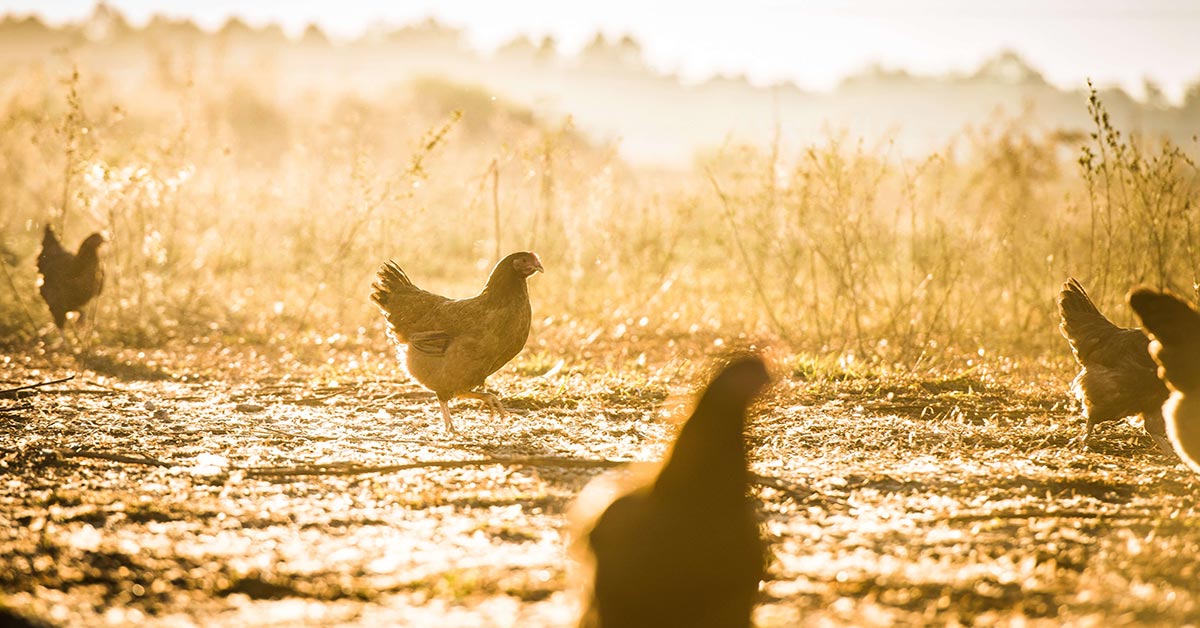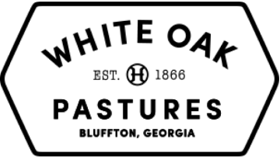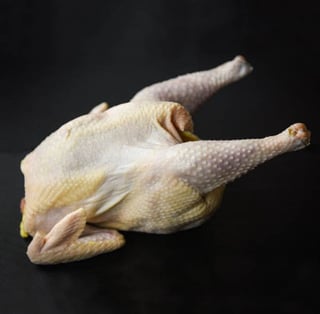
Cage-free, Free Range, pasture-raised, organic: poultry and eggs come advertised with a head-scratching number of “labels” and descriptions. Although these labels may sound similar, some qualifications are more regulated than others and they all indicate completely different levels of animal welfare.
Check out our comprehensive guide to understand the difference between Free Range vs pasture-raised vs cage-free, and what labels conscious consumers are choosing to purchase.
Cage Free vs. Free Range
Cage-free and Free Range eggs, in particular, tend to be misleading for consumers. While both sound positive—generally, you find few people advocating for cages, or restricting animal movement— these labels have a very low bar for farmers to meet.
Cage-Free definition:
- Poultry don’t live in cages.
- These birds can still be crammed 20,000-40,000 to a barn, effectively unable to move, without any access to the outdoors.
Free Range definition:
- Poultry have access to as little as 2 square feet of outdoor area per bird, but this doesn’t mean that the birds ever see the outdoors.
- Hens designated Free Range may still be crammed into a barn, with even just one small access point to the outside.
- Free Range chicken requirements do not specify government oversight to the quality or amount of time hens have access to the outdoors.
Organic vs. Pasture-Raised
Terms like organic and pasture-raised eggs and poultry frequently go together, but these terms do not mean the same thing.
Organic definition:
- Poultry eats solely organic feed.
- Poultry is not given antibiotics or hormones.
- Organic chickens must live in cage-free environments and have access to an outdoor area.
Pasture-raised definition:
- Poultry is raised in a way that’s consistent with how chickens would naturally live: in pasture, with the ability to freely roam, scratch, and peck, improving the soil at the same time. (In the words of Will Harris, “the hens could walk to Atlanta if they wanted to”.)
- When pasture-raised poultry and eggs are paired with a Certified Humane label, this indicates that hens are given 108 square feet of outdoor space per bird, as well as access to a barn or structure for shade and cover.
- Pasture-raised chickens eat a diet made up of provided feed and foraged grubs and insects, which is the natural diet of healthy birds.
At White Oak Pastures, our hens live outdoors on pasture, and we provide shelter for our birds so that they can take cover under a roof in the event of a storm or eagle attack. Since we have thousands of laying hens, we use a mobile shelter, fencing, and water system that fits the size of our operation. Although we lose some birds to a growing bald eagle population, we feel this is a natural, healthy ecosystem that allows our poultry to express their instinctive behaviors.
We raise our chickens and produce our eggs using pasture-raised methods that go above and beyond label regulations.
WATCH: Animal Impact: Pasture-Raised Poultry
Cage Free vs Free Range vs Pasture-Raised: which is best?
When considering animal welfare, as well as the quality of the product, we consider 24/7 outdoor life in a pasture to be the gold standard. At White Oak Pastures, our pasture-raised chickens are Certified Non-GMO, Certified Humane, and Ecological Outcome Verified in the Land2Market Program.
Next time you shop for poultry or eggs, you are now armed with the real story behind the advertising descriptions. At our farm, we believe that when you are proud of your animal welfare practices, you don’t need to hide behind misleading labels.
WATCH: Pasture-Raised Chicken Eggs: From Pasture To Plate
Bird Box Stewing Hen Package
This package contains 7 whole stewing hens, which have spent the last 2+ years laying eggs, so they are flavorful, with strong bones. Our stewing hens weigh 2 pounds each. Because of their diet and exercise, our birds are lean animals. You shouldn't expect an abundance of meat on these birds, as they are best used making a nutritious stock or broth!
And if you love our stewing hens, check out some of our other 100% pasture-raised poultry products:


